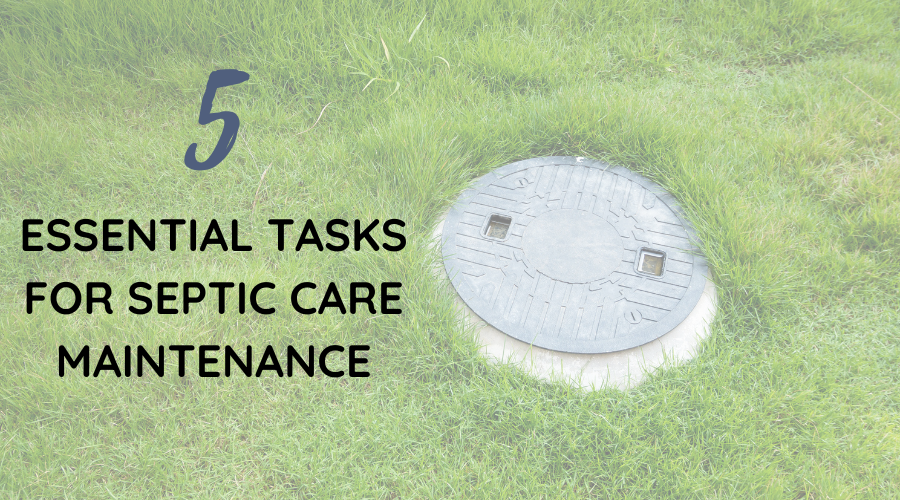Proper septic system maintenance is essential to avoid unpleasant odors, backups, and costly repairs. Here are five tips to keep your septic system running smoothly:
- Pump your tank regularly: Your septic tank should be pumped every 3-5 years, depending on the size of your tank and the number of people in your household. Regular pumping will prevent solids from building up and clogging your drain field.
- Use water efficiently: Too much water can overload your septic system, leading to backups and failures. Make sure to fix any leaks and avoid doing multiple loads of laundry or running the dishwasher all at once. Many people don’t realize that running multiple loads of laundry during the day can put excess strain on your septic system, risking flooding to the drain field. Consider spreading out your washes over the week and switching to a more energy and water efficient washer, such as an ENERGY STAR washer.
- Avoid flushing non-biodegradable items: Flushing non-biodegradable items like diapers, wipes, and feminine hygiene products can damage your septic system. There are only two things that should ever go down your toilet: human waste and toilet paper. Make sure to dispose of non-biodegradable items items in the trash instead.
- Avoid using harsh chemicals: Harsh chemicals like bleach, drain cleaners, and antibacterial soaps can kill the bacteria in your septic system, leading to backups and failures. Use natural cleaners like vinegar and baking soda instead. Chemicals, grease, oil pesticides, gasoline, antifreeze, or paint should never go down your drains as well!
- Protect your drain field: Your drain field is the area where the liquid from your septic tank is dispersed into the soil. Avoid parking on or building over your drain field, as this can damage the pipes and prevent them from working properly.


Thanks for sharing this! A valuable tip not mentioned in the article is to consider using a septic system additive. Some additives contain beneficial bacteria and enzymes that can help break down solids in your septic tank, promoting better decomposition and reducing the need for frequent pumping. However, it’s essential to choose a reputable product that is safe and effective for your specific system.
Thank you! We appreciate the input as well! 🙂
In addition to the tips mentioned, it’s important to regularly inspect and maintain the septic system’s effluent filter. The effluent filter prevents solids from entering the drain field, which can help extend its lifespan and improve the overall efficiency of your septic system. Cleaning the filter annually or as recommended by your septic professional can prevent clogs and ensure smooth operation.
Thanks! One more tip for maintaining your septic system that hasn’t been mentioned is to regularly inspect and clean the effluent filter. The effluent filter is located in the septic tank’s outlet baffle and helps prevent solid waste from entering the drain field. Over time, this filter can become clogged, reducing the efficiency of your septic system and potentially leading to backups. Cleaning the effluent filter annually, or as recommended by your system’s manufacturer, can help maintain optimal performance and prevent costly repairs.